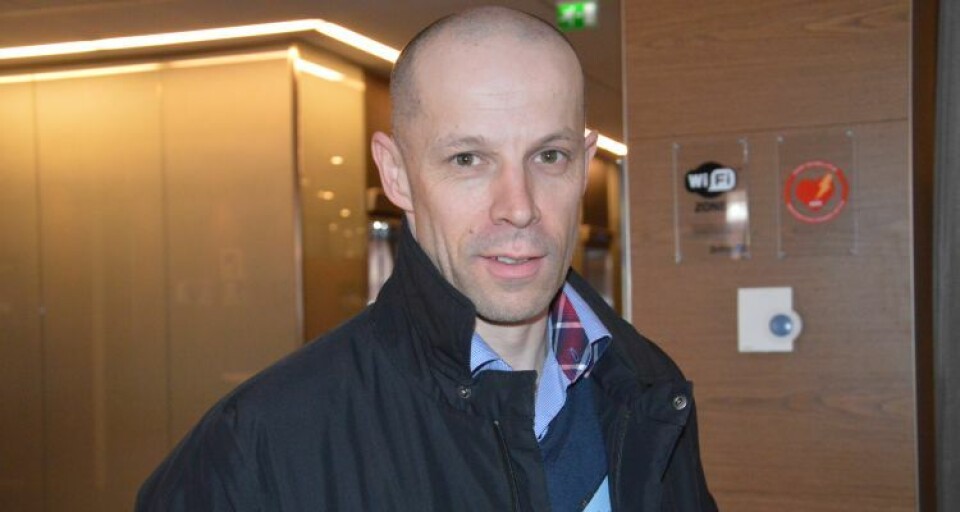
NRS profit down in Norway and up in Iceland
Takeover target Norway Royal Salmon (NRS) has reported an operating profit of NOK 94 million (£7.65m) for the second quarter of 2021 and EBIT per kg of NOK 11.74. Corresponding figures for the same quarter last year were NOK 120m and NOK 17.06.
Norwegian companies NTS, which owns salmon farmer Midt Norsk Havbruk, and SalMar, which is co-owner of Scottish Sea Farms, both want to buy NRS, pushing the price of its shares up.
“During the second quarter, we have had a successful start-up of the smolt facility in Dåfjord and good progress on the Arctic Offshore Farming development project,” said chief executive Charles Høstlund in a market announcement this morning.
“Together with the company’s activity in Iceland, these two projects are important for the group's ambition for volume growth. The smolt facility will in the long run ensure the supply of smolts and reduce production costs. Arctic Offshore Farming is expected to be launched into the to sea in the third quarter of 2021.
Cost too high
“Regarding the second quarter results, we are not satisfied with the production cost in the quarter, but we expect reduced costs in the third quarter.”
NRS’s Farming Norway division posted an operational EBIT of NOK 96.3m in the quarter, compared with NOK 134.7m in the corresponding quarter last year. Operational EBIT per kg gutted weight was NOK 12.22 compared with NOK 17.06 in Q2 2020. Farming Norway harvested 7,879 tonnes gutted weight in the quarter, around the same as in Q2 last year. Sold volume from the sales business in the quarter was 18,776 tonnes salmon, 9% lower than Q2 2020.
Farming Iceland posted an operational EBIT of NOK 17.6m in the quarter, compared with NOK 3.1m in the corresponding quarter last year. Operational EBIT per kg gutted weight was NOK 9.66, up from NOK 3.88 in Q2 2020. Farming Iceland harvested 1,824 tonnes gutted weight in Q2, a 126 % increase on Q2 2020.
Increased harvest
NRS expects its total 2021 harvest volume to be 48,000 tonnes, of which 36,000 tonnes will be from Norway and 12,000 tonnes from Iceland. This is an increase of 18% for Norway and 61% for Iceland compared to 2020.
“The demand for salmon is increasing and a reduction in the global harvest volumes is expected for the rest of the year. This provides the basis for a positive market view for salmon,” said Høstlund.
On July 16, NTS made a mandatory offer for all shares in NRS at NOK 209 per share and subsequently increased that to NOK 240 per share with an acceptance deadline of August 26. On August 20, SalMar announced that it intends to make a voluntary offer for all shares in NRS of NOK 270 per share.
Board backs SalMar
Early today, the board of directors of NRS issued a statement on the respective offers and backed the SalMar bid.
“The offer price in the intended offer from SalMar ASA is significantly higher than the offer price of NOK 240 in the mandatory offer from NTS ASA,” stated the board. “It should be noted, however, that the offer from NTS ASA is unconditional while the offer from SalMar ASA will be conditional upon a minimum acceptance of more than 50% of the shares in NRS on a fully diluted basis and certain other conditions (as described in the announcement from SalMar ASA).
“Given the significant price difference between the offers, the board of directors is of the view that the intended offer from SalMar ASA is superior to the offer from NTS ASA. In consequence, the board of directors recommends that shareholders do not accept the offer from NTS ASA. However, shareholders should make their own evaluations of the offers and make their own decisions based on their own investment preferences.”
NRS has a solid financial position. At the end of Q2 it had NOK 1.633 billion in unutilised credit facilities and NOK 118m in bank deposits. Net operational cash inflow in the quarter was MNOK 239. Despite payment of dividend and large payments for the growth investments in Arctic Offshore Farming and the new smolt facility, the net interest-bearing debt decreased in the second quarter by NOK 69m to NOK 1.955bn. The equity increased by NOK 221m to NOK 4.319bn, which equates to an equity ratio of 55%.























































